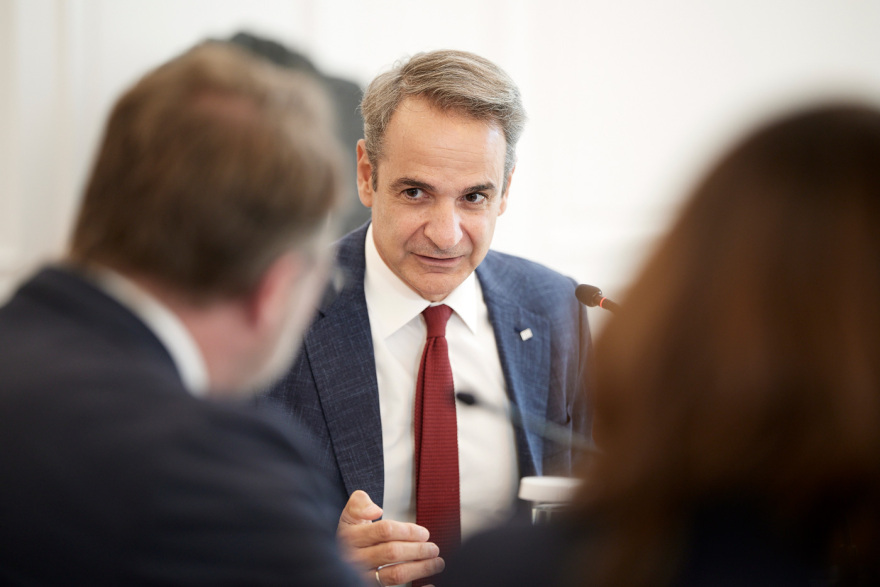The housing problem and the reduction of energy price were at the center of his meeting Kyriakou Mitsotakis With the European Commissioner Dan Gergensen, made at the Maximus Palace.
During the meeting, priorities were discussed with the portfolio of K. Gergensen and issues of Greek interest with the reduction of energy prices for households and businesses, as well as the importance of connectivity projects of common European interest in EU energy security.
In accordance with Maximus Palace the housing policies And the government’s initiatives, which points out that they are in line with the priorities of the Commissioner for the affordable housing.
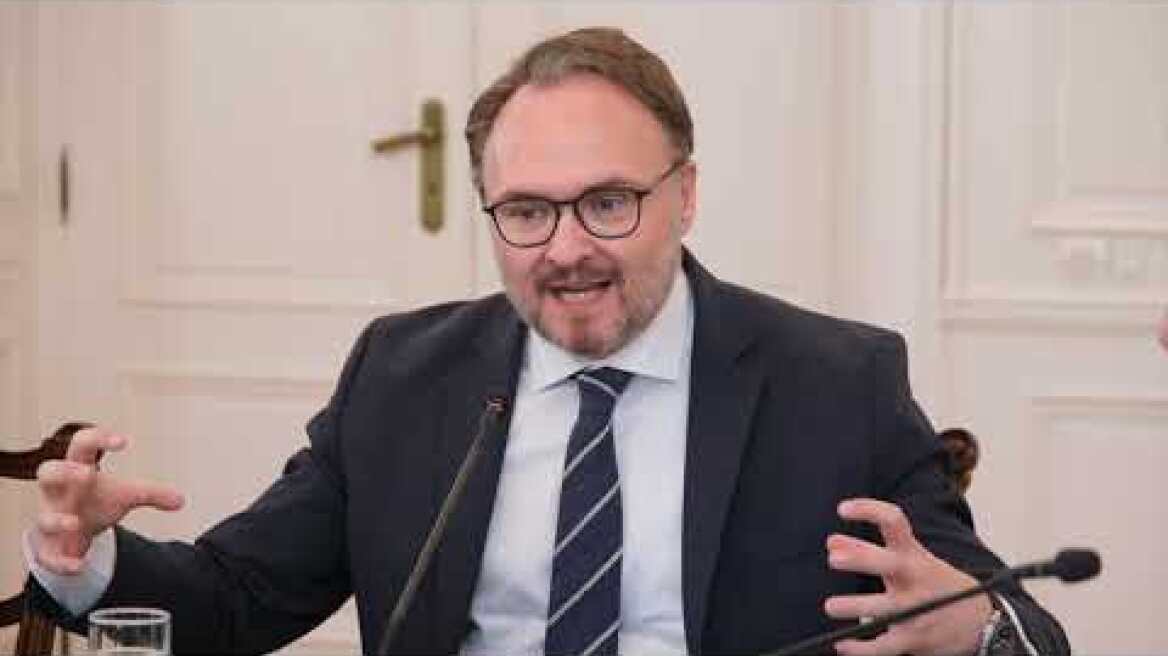
“It is very difficult for me to explain to the citizens is the fact that we are a country-country country, but at the same time we end up having higher electricity prices than many other European countries,” Mr Mr said. Mitsotakis, pointing out that the European Purchase of electricity does not work well. The government has set up a special team to address the issue and considers that European competitiveness should be strengthened in the area as well.
On the issue of the roof, Mr Mitsotakis said that the increase in rents came as a result of economic growth. In addition to the government’s initiatives and actions, the aim is to have a European approach to the issue, with funds that could possibly be available for accessible housing.
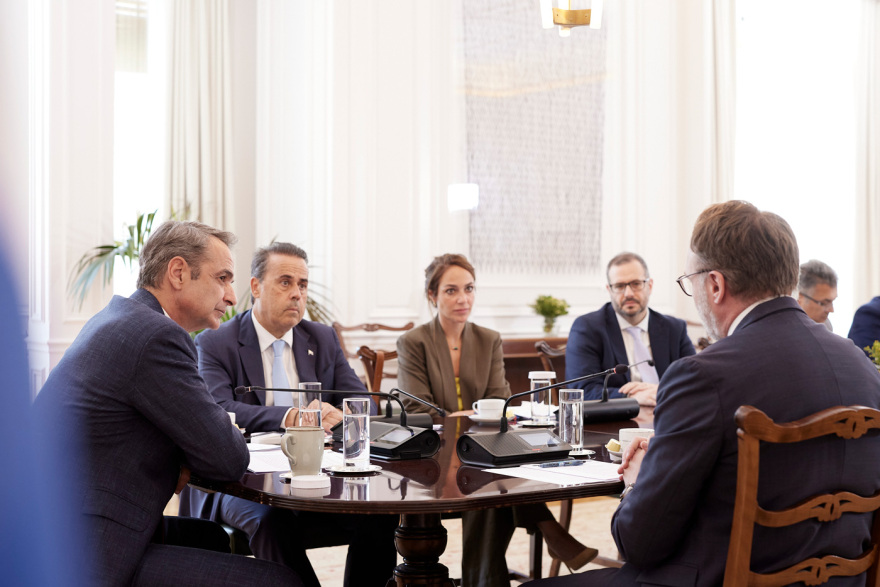
In detail, Mr. Mitsotakis and the European Commissioner had the following dialogue:
Kyriakos Mitsotakis: Welcome to Athens. You come to a very interesting moment, the day after the European Commission’s initial announcements for the next European budget, the next multi -year budgetary framework. And without going into many details, I would like to point out that we are very pleased with the fact that there seems to be of particular importance to pan -European interconnections, electric networks. This is an issue that I have highlighted many times, including in a letter I sent to the President of the European Commission at the beginning of this year.
As you know, the countries of Southeast Europe seem to be punished by inadequate interconnections, but also because of the fact that the target model does not seem to always work in ways we fully understand in terms of energy pricing. And what is very difficult for me to explain to the citizens is the fact that we are a green transition country, but at the same time we end up having higher electricity prices than many other European countries.
Therefore, it is obvious that something is not working properly and it is important that we have set up a special team to address this issue and that you seem to have complete control of the situation, because I believe it is not an issue that concerns Greece only, but the whole of Europe. At the moment, we do not have a well -functioning European electricity market and we must really create it if we are to boost European competitiveness in all areas. Therefore, this is probably our first priority in the energy sector.
Of course, we are here to discuss other issues related to your portfolio, and I would like to specifically refer to the housing issue. Affordable housing It was not a problem in Greece a few years ago. It has become a problem as a result of economic growth, which has put pressure on the real estate market. We have taken many initiatives on affordable housing. I believe you have been informed about some of them.
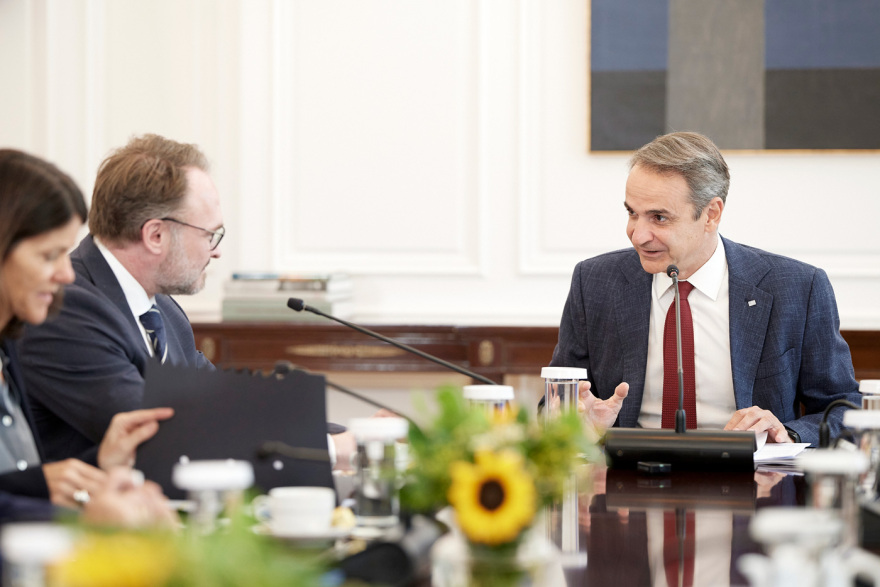
However, we would also like to hear your views on how we can approach this problem from a European perspective and what we can expect in terms of European funds that could potentially be available on the issue of accessible housing. It is one of our main priorities and we also direct the financial surplus we create thanks to the proper management of our public finances, including to support those who are on rent.
For example, we have announced that from November we will return a rent to those who rent home, of course, according to income criteria, which will favor many Greeks, especially the younger ones, who are currently forced to rent and do not have the financial means to buy their own home.
So we have a wide range of issues. But again, thank you for being here and thank you for the excellent cooperation you have already developed with our ministers and services.
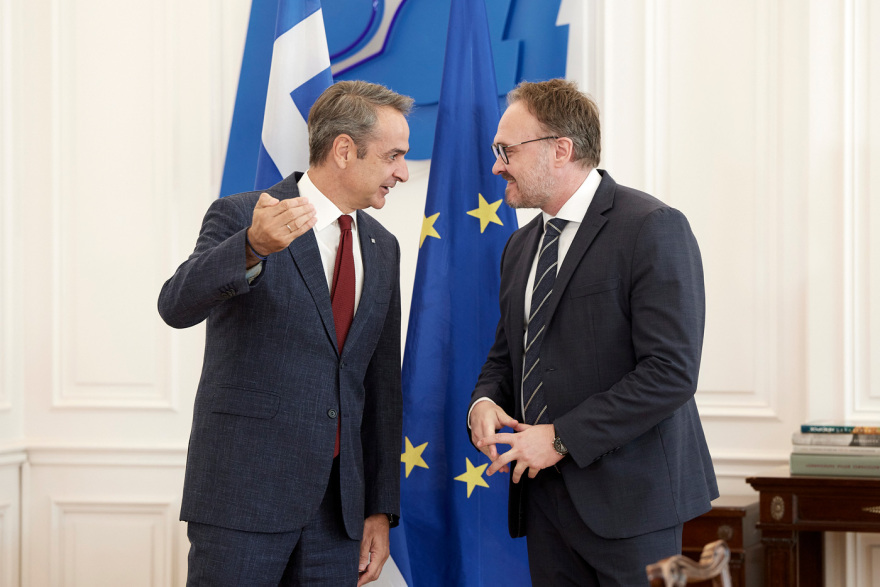
Dan Jørgensen: Thank you for the meeting, Mr Prime Minister. I don’t know if they informed you, but when I came in I went through a very important test. Your dog, the painting, greeted me and I was very pleased.
Thank you very much, Mr Prime Minister, who is constantly updating the European Commission on the challenges you and neighboring countries are facing in the energy sector. Because, as you rightly you said, it is somewhat paradoxical that on the one hand you are definitely pioneers in developing more renewable energy sources, which are a very important part of your energy mix, something that all countries want to do, but at the same time you pay a lot for your energy.
This committee, therefore, is determined to help reduce prices and indeed the most effective we can do is to ensure that we facilitate more interconnections. In this context, I am sure you were just as happy as me yesterday, when we submitted the proposal for the new long -term budget of the European Union, because we will actually increase our budget by not two but five times. In the current multiannual budgetary framework we have a little less than 6 billion euros, and in the next we propose to spend a little under 30, 29 billion euros.
It is, therefore, a huge investment in networks, interconnections, hydrogen infrastructures and all the material infrastructure we need to connect our countries to gain a real and well -functioning energy union. Thank you very much for that.
Thank you, too, for suggesting setting up a special team (task force). As you know, I have taken into account this proposal and have recommended such a special team that is now working very hard to provide us with recommendations about what we can do both in short and medium term. I will also submit this autumn a plan for European networks, which is of course necessary to then make the investment actually operate in a rational and good way.
For us, there are three main goals in our energy policy in the Union. The former is indeed to reduce prices, both for our difficult businesses, but of course for our citizens who find it difficult to pay high energy bills.
The second is energy independence. Obviously, we want to get rid of our dependence on Russian energy, especially natural gas. That is why, as you know, I recently submitted a legislative proposal to ban the introduction of gas from Russia.
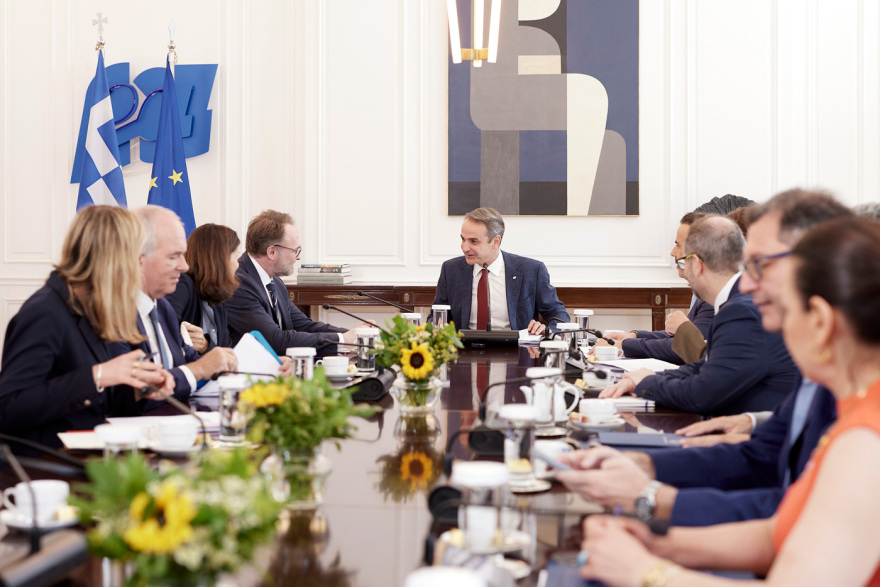
And third, of course, charisma. You know very well in this country how climate change already affects us. I often refer to Greece and other countries in this area as an example. When I sometimes find that support for the fight against climate change is not as strong as it should, I say to the opposites: Listen, climate change is not something that can happen in the future. It is something that is already here, now, and causes serious problems in many Member States.
Your minister, my friend Stavros, just told me that he would not be vacationed this year because he has to be here as he has the responsibility for the forests, including forest fires, which we unfortunately must predict each year. So thank you very much.
Kyriakos Mitsotakis: It’s his first summer.
Dan Jørgensen: This is part of the job.
And I just had the opportunity to talk to the Minister responsible for housing in your country. It is very clear that the housing is now at the top of the agenda in many countries. And as you said, Mr Prime Minister, a few years ago this was not the case. But now he is regarded by many as the biggest problem they face. If you can’t afford a place to live, young people can’t leave their parents’ home, get the education they want, find the job they want, this is a huge problem for them and their lives, but it is also a problem for our economy.
I am the first commissioner, then, to have this item in my portfolio and will submit a comprehensive plan for affordable housing early next year. Therefore, I look forward to listening to your views today about what you would like such a plan to include. And then, of course, we have to work together as best we can to implement it.
Thank you very much, Mr Prime Minister, who welcomed me here today, you and the table.
